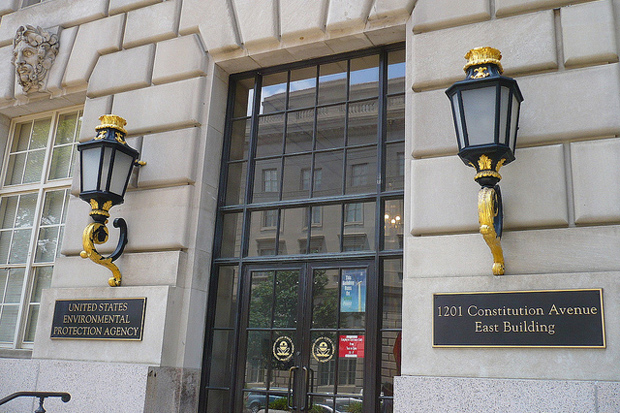
Court Losses Won’t Deter Attorney General Scott Pruitt In His Fight With The EPA
-
Logan Layden
When the U.S. Environmental Protection Agency last week proposed new rules to cut carbon emissions by 30 percent, Oklahoma Attorney General Scott Pruitt — predictably — blasted the plan as another example of federal overreach in the Obama Administration’s war on fossil fuels.
And the same day the EPA announced its CO2 emission goal, Pruitt was already making a case for litigation over it.
“The EPA can’t force utility companies to actually incorporate emission control measures unless they’re achievable through technology,” Pruitt tells StateImpact. “And here, there really isn’t any demonstrated technology that will see a reduction of 30 percent.”
For him, this is just the Obama Administration’s latest salvo against utilities and the coal industry that tramples on states’ rights.
“You know, this is coerced conservation, in effect,” Pruitt says. “This is the administration saying ‘we’re going to penalize fossil fuels. We’re going to emphasize renewables, cause energy costs to skyrocket.’
Of course, this is far from the first time Pruitt is crying foul about federal overreach, or maybe he’s crying wolf.
“Off the top of my head, I can’t think of a time, recently, when Oklahoma has been successful in taking the EPA to court,” Whitney Pearson with the Sierra Club’s Beyond Coal Campaign in Oklahoma says.
She tries to remember all the times Pruitt has sued the EPA since taking office in 2011.
“Like, the cross-state air pollution rule, which they were not successful on, the mercury and air toxics protections that they were also not successful on, and then regional haze,” Pearson says.
The U.S. Supreme Court in May decided not to hear Oklahoma’s challenge to the regional haze rule. The state has also joined other states’ lawsuits against the EPA, like in the yet-to-be-decided Texas vs. EPA case over the federal agency’s authority to regulate greenhouse gasses. Pruitt has also sued EPA for being sued — by environmental groups like the Sierra Club.
“They’re getting sued — it’s almost a wink-wink kind of thing,” Pruitt says. “‘You sue us. We’ll agree to a settlement. And in that settlement, we’ll agree to obligations that aren’t in the statute, and we’ll regulate that way.’”
He’s still asking for documents from the EPA related to his ‘sue and settle’ claims, but the lawsuit he filed to get them was dismissed late last year.
Some cases are pending. Some Pruitt lost. But notice there are, so far, no wins in that list of cases. University of Texas environmental law professor Thomas McGarity explains why:
“How the courts tend to come out — though not always — is to defer to EPA on these matters of scientific judgment,” McGarity says.
But Pruitt says fighting these court battles is worth the effort even if he doesn’t win. Take the regional haze case:
“The court put a stay in place, preventing our utility companies from having to spend two-plus billion dollars,” Pruitt says. “That saved us three years of costs, and oh by the way I think led to some alternative plans that were perhaps more accommodating.”
McGarity, who’s also with the Center for Progressive Reform and used to work for the EPA, says things haven’t always worked like this. Congress used to vote for new environmental regulations.
“Back in the early days there were Republicans that were strong environmentalists. There were Republicans that wrote the Clean Air Act,” McGarity says.
In fact, in 1990, Oklahoma sued the EPA for not regulating pollution in the Illinois River enough. But McGarity says, now, the environment has become a political issue, and more proof will be in the coming lawsuits against the new carbon rule.
“EPA is going to have to really hustle to get a final rule on the books before the end of the Obama Administration,” McGarity says.
That’s the thing about using executive power. A new executive can come in and undo whatever the previous one did. So maybe Pruitt and other like-minded attorneys general in other states can just run out the clock on Obama.

